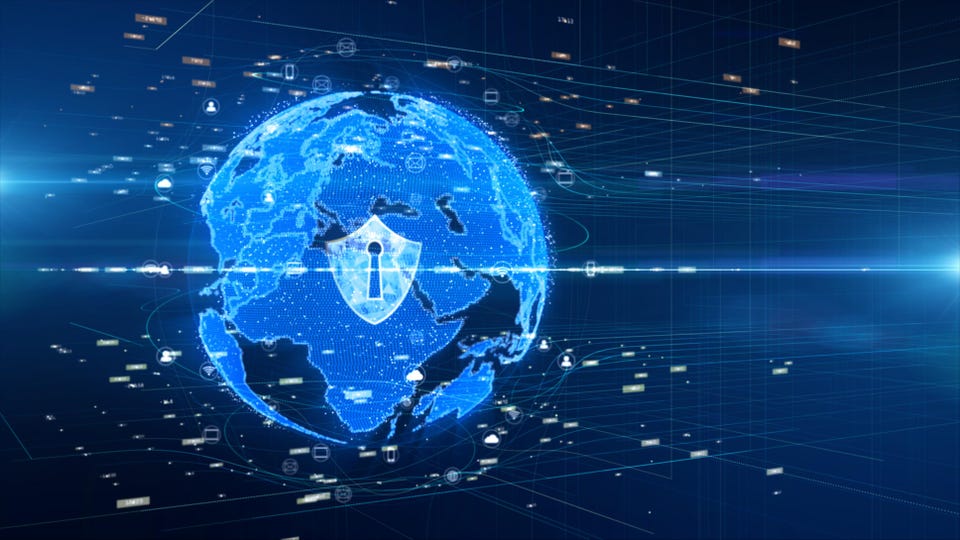The World’s Most Cybersecure Countries (And How To Protect Yourself When You’re Not In One)


The internet has been integrated so deeply into our working world that it has become one of the main sources of crimes. Criminals aiming to undermine organizational security and stability by stealing money or information have more means than ever to do so.
As a result, businesses must reconsider cybersecurity and take precautions to secure their personnel and information. Regarding working models and cybersecurity, the past few years have made decision-makers rethink how organizations work. We know remote and hybrid work is here to stay.
In addition, with Covid-19 restrictions lifted and travel once again an option, the remote work-from-anywhere trend is gaining more attention. However, more people working remotely means higher stakes for IT admins, and combined with bad employee cybersecurity habits, a digital nomad lifestyle might be costly for some companies.
The Best Cybersecure Countries For Remote Work
Digital nomads and travelers need to know which countries have high cybersecurity standards and which are struggling. Choosing the right destination for remote work should be taken into consideration if cybersecurity is your priority.
For that reason, a comprehensive global remote work index (GRWI) was created by my company, NordLayer, to assess the appeal of remote work in 66 countries. This index provides insight for comparing countries in terms of cybersecurity, digital infrastructure and other criteria. According to the GRWI, the best countries in terms of cybersecurity are Slovakia, Lithuania, Germany, Estonia and Greece.
Methodologically speaking, the cybersecurity category consisted of three components, each given equal weight. These factors define if a country is a cybersecure destination, and remote workers should pay attention to them.
1. Infrastructure Capacity: This is determined by the GRWI’s technical, organizational and capacity development scores for countries. It includes such criteria as countries’ technical and organizational measures as well as capacity development.
2. Cybercrime Threat Response: This is evaluated by incidents and crisis management indicators from the National Cyber Security Index. The criteria include cyber incident response, cyber crisis management and the ability to fight against cybercrime.
3. Existing Legal Measures: This is determined by baseline cybersecurity indicator data from the National Cyber Security Index. It includes the protection of digital and essential services as well as the security of personal data.
But regardless of where you are, individuals and organizations should approach cybersecurity with a critical mindset. Humans are the main and most important link in the cybersecurity chain. Cybersecurity hygiene is necessary for even the safest countries.
How To Practice Cybersecurity Hygiene
If, for a remote work destination, you choose popular digital nomad countries that do not have a high level of cybersecurity, such as Thailand (40th place), India (43rd place) and Indonesia (51st place), make sure to follow cybersecurity hygiene.
• Use VPN network protection. Remote work comes with its own set of risks, such as unsecured networks, lack of physical IT access control and increased reliance on cloud services. A company’s VPN will help protect your device and your company’s data when you use public Wi-Fi. It will also help IT admins regulate information access.
• Attend or organize cybersecurity training. Because cybersecurity threats are always evolving, it is important to freshen up your and your employees’ knowledge. Statistics show that 33% of companies do not offer training to employees working remotely. When employees work abroad, the risk of not responding if the company’s information becomes corrupted increases. So, it is much more cost-effective to prevent and prepare for such an eventuality.
• Have a zero-trust mindset. A “trust none, verify all” mindset is beneficial for managing work equipment, resources and networks, especially when employees are working abroad. Keep this policy in mind whenever you or your employees travel because personal devices can act as an entryway to the organization. Don’t let mobile devices out of sight, and never leave equipment unattended or plug in any unfamiliar USB devices.
Remote work is here to stay and can be both a blessing and a curse regarding cybersecurity. A combination of a carefully selected destination, critical thinking and cybersecurity tools such as VPNs, password managers and antivirus software can help maximize security and ensure a smooth experience for both employees and employers.
